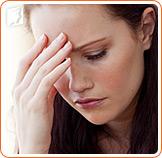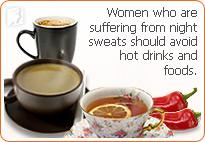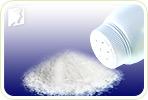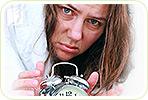Often referred to as "nocturnal hyperhidrosis," night sweats are the nighttime version of hot flashes and are a common symptom of menopause. Night sweats cause intense perspiration, flushing, and overheating at night that can cause a woman to wake up and regularly disturb her sleep. As many as three-quarters of menopausal women will experience night sweats during menopause, and a range of treatments are available to treat them.
About Night Sweats
Similar to hot flashes, these are nighttime episodes of sweating and can interrupt sleep patterns and have a negative effect on the daily life of a woman. They can range from mild to severe. Some women experience reoccurring night sweats for no more than six months, while others can experience them for up to 11 years. African-American women are the most likely to have night sweats, according to recent studies.
Night sweats are caused by reduced estrogen levels, as estrogen plays a role in the body's thermoregulation. When estrogen levels become lower, the body has trouble controlling temperature, and this can lead to symptoms like night sweats and hot flashes.
Symptoms of Night Sweats

Symptoms of night sweats include:
- Headaches
- Feelings of sudden heat
- Chills after the night sweat finishes
- Nausea
- Irregular heartbeat
- Flushing in the face and upper body
Night sweats have been correlated to:
- Sleep disorders

- Trouble concentrating
- High stress levels
- Insomnia
- Fatigue
- Depression
- Anxiety
Night Sweats Triggers
Triggers for night sweats include:

- Stress
- Anxiety
- High temperatures
- Synthetic sheets
- Spicy foods
- Smoking
- Excessive consumption of alcohol
- Diet pills
Treatments for Night Sweats
If your night sweats are disturbing your quality of life, it is important to see a doctor, who can provide you with medicine and offer you more specialized advice. One of the most effective treatment for night sweats and other menopause symptoms - such as hot flashes and vaginal dryness - is hormone replacement therapy (HRT). This treatment adds estrogen to the body, and has found to be effective. However, HRT does have side effects and can increase the risk of getting some diseases, so it is important to talk to your doctor about what is right for you.
Lifestyle changes, such as having a fan in your bedroom, using breathable pajamas and sheets that are made out of natural fibers, and keeping a glass of ice water by your bed can also help treat night sweats. In addition, certain herbal supplements may help in balancing estrogen levels. Click on the following link to learn more about controlling night sweats during menopause.
Sources
- National Health Service UK. (2015). Hot flushes: how to cope. Retrieved November 17, 2015, from http://www.nhs.uk/Livewell/menopause/Pages/hot-flushes.aspx
- National Prescribing Service Medicinewise, Australia. (2014). Managing hot flushes in menopause. Retrieved November 17, 2015, from http://www.nps.org.au/publications/consumer/medicinewise-living/2014/managing-hot-flushes



